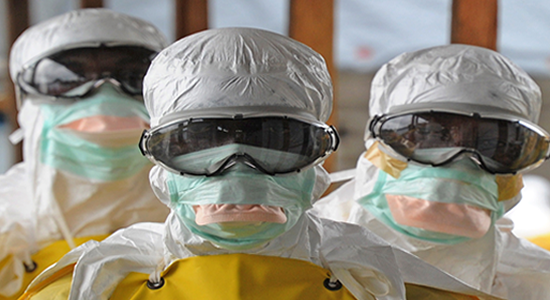DR Congo Confirms Two Cases Of Ebola
The democratic republic of Congo has confirmed two cases of Ebola virus in the north-western town of Bikoro and at least 10 more cases are suspected, the head of the national institute for biological research, Jean Jack Muyembe, has said.
The two cases were confirmed by the laboratory of the National Institute of Biomedical Research in Equateur Province, northwestern DRC.
It is the nine-time Ebola has been recorded in the DRC, whose eastern Ebola river gave the deadly virus its name when it was discovered there in the 1970s.














